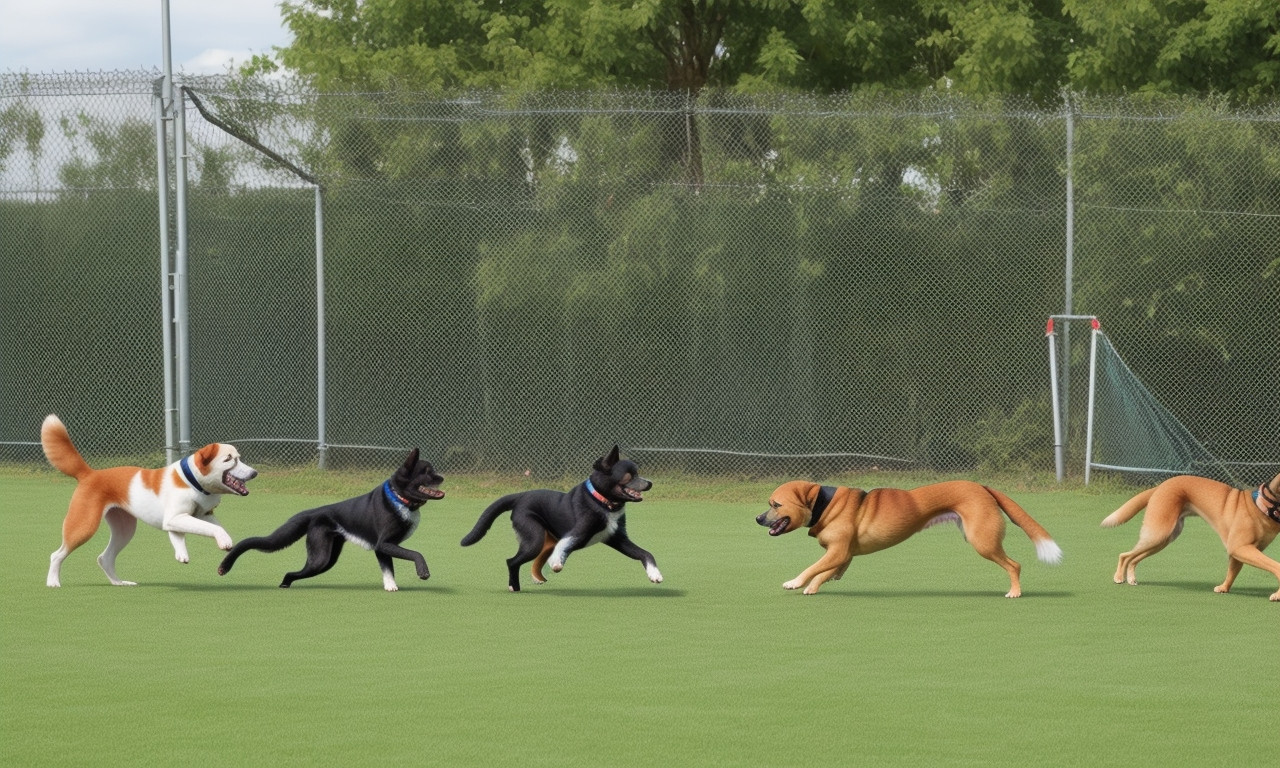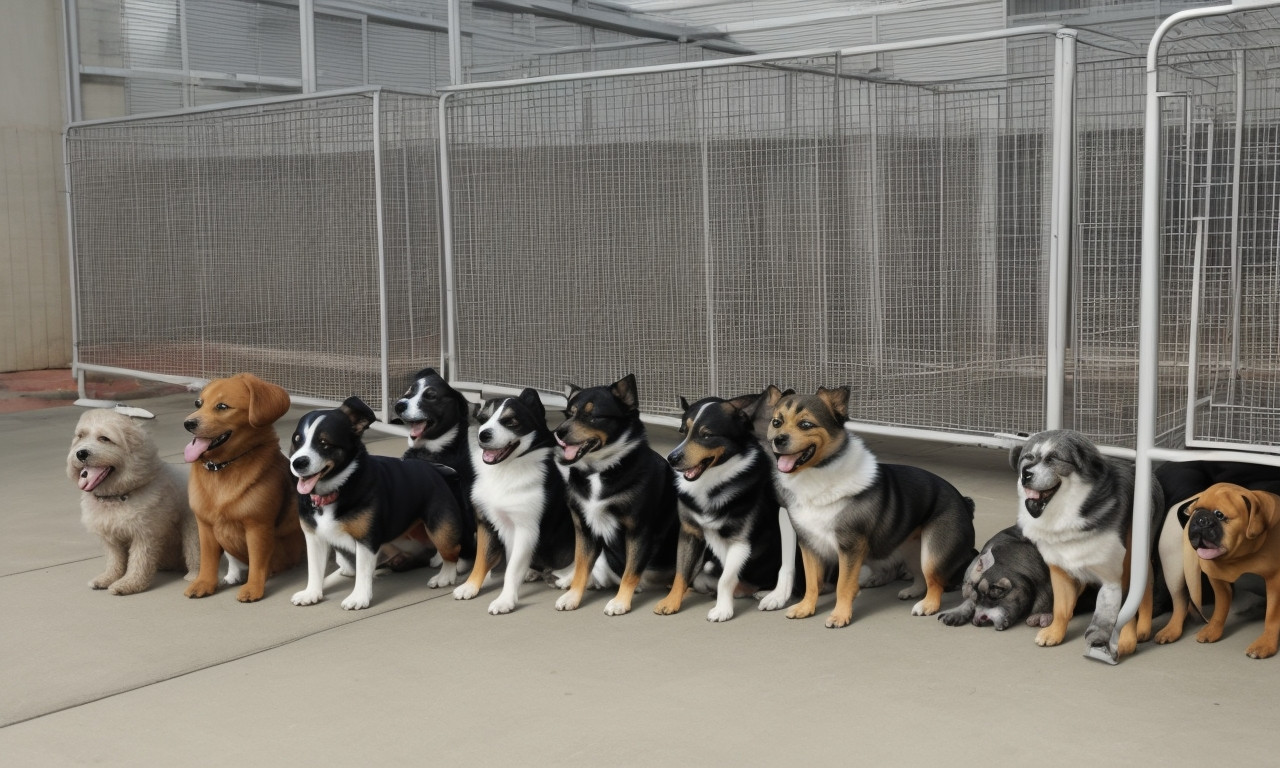Are you seeking serenity amidst the symphony of yips and yaps from your beloved Havanese? Dive into our definitive guide where we decode the vocal habits of these charming canines and arm you with expert strategies to gently hush their harmonies. Whether it’s quiet time you crave or just peace of mind, discover how to foster a tranquil coexistence with your furry companion—because understanding the Barking Ballet of Havanese is the first step toward a quieter, happier home. Join us as we explore the melody of their bark and unveil top-tier techniques to turn the volume down!
The 3 Reasons a Havanese Dog Would Bark

Havanese dogs are known for their friendly demeanor and are generally not excessive barkers. However, like any breed, they may bark for specific reasons. Understanding the triggers for barking is paramount in helping to quiet your furry friend. Here are three common reasons why a Havanese dog would bark, along with some expert tips to address each situation:
1. Alert or Warning
Reason: Havanese dogs may bark to alert their owners of something unusual or when they perceive a potential threat, such as a stranger approaching their territory.
Expert Tips:
- Acknowledge your dog’s alert and then reassure them that the situation is under control. This can be done by checking the source of their alert and then calmly responding.
- Train your dog with commands like “quiet” or “enough” so they know when to stop barking. Reward compliance with treats or affection to reinforce the behavior.
- Provide ample socialization opportunities for your Havanese to get accustomed to new people and environments, reducing the novelty and thus the urge to bark.
2. Seeking Attention or Boredom
Reason: Sometimes a Havanese might bark because they want attention, are bored, or lack physical and mental stimulation.
Expert Tips:
- Ensure your Havanese has a suitable amount of attention and companionship throughout the day. Interactive play and regular walks can help meet their social and exercise needs.
- Engage your dog with puzzle toys or training sessions to keep their mind active and reduce boredom-related barking.
- Establish a routine that includes quiet time so your Havanese learns to be calm and enjoy moments of solitude.
3. Anxiety or Fear
Reason: Barking can be a manifestation of anxiety or fear in response to certain stimuli such as loud noises, unfamiliar animals, or changes in the environment.
Expert Tips:
- Identify the source of anxiety and try to remove or desensitize your dog to it. Gradual exposure combined with positive reinforcement can be effective.
- Provide a safe space, such as a crate or a quiet room, where your Havanese can retreat to when they feel anxious.
- Consider seeking help from a professional animal behaviorist if the anxiety is severe. They can offer tailored strategies to manage your dog’s specific fears.
Remember, consistent training and positive reinforcement go a long way in preventing unwanted barking. Be patient and understanding of your Havanese’s needs and emotions. If you’re unsure about your approach or if the barking persists, consulting a professional dog trainer or behaviorist can provide you with more personalized strategies for your furry friend.
1. Separation Anxiety

Havanese dogs have a reputation for being vocal which includes barking. While they are not necessarily excessive barkers, their vocal tendencies can be stimulated by various triggers, including separation anxiety. Separation anxiety is a condition where a dog feels extreme stress and fear when left alone or separated from their human companions.
If your Havanese is barking a lot due to separation anxiety or other reasons, here are some expert tips to help manage and reduce their barking:
-
Identify Triggers: Understand what triggers your Havanese to bark. If it’s due to separation anxiety, you will notice signs of distress when you’re about to leave or when they are left alone.
-
Create a Safe Space: Make a comfortable area in your home where your Havanese feels safe. This can be a crate or a quiet room with their favorite toys and a piece of clothing with your scent.
-
Behavioral Training: Invest time in obedience training. Teach your dog commands such as “quiet” or “no bark” to discourage barking. Positive reinforcement is key – reward them for quiet behavior.
-
Desensitization and Counterconditioning: Gradually expose your Havanese to the stimuli that cause anxiety while associating the experience with something positive, like treats or playtime, to change their negative reaction.
-
Exercise and Mental Stimulation: Ensure your Havanese gets plenty of exercise and mental stimulation. A tired dog is usually a quiet dog. Puzzle toys, new tricks, and regular walks can help keep them occupied and less likely to bark out of boredom or stress.
-
Practice Departure Cues: If separation anxiety is the cause, try to desensitize your dog to your departure cues. Pick up your keys, put on your coat, but then sit down instead of leaving. Repeat this to help your Havanese understand that these cues don’t always mean you’re leaving.
-
Gradual Departures: Start leaving your Havanese alone for shorter periods and gradually increase the time you’re away. This helps them understand that you will return.
-
Professional Help: If your Havanese’s anxiety or barking is severe, consult a professional dog trainer or a veterinarian. They can provide specialized interventions, which might include behavior modification programs or, in some cases, medication.
-
Avoid Punishment: Do not yell at or punish your Havanese for barking as it can increase anxiety and worsen the behavior.
By implementing these strategies, you can help reduce your Havanese’s barking and alleviate its separation anxiety, contributing to a more peaceful environment and a happier dog. It’s important to be consistent and patient, as behavioral changes can take time.
2. Poor Socialization

Havanese dogs are known for their friendly and sociable nature, but like any breed, they can develop a tendency to bark excessively if not properly socialized. Poor socialization can lead to a Havanese feeling anxious, fearful, or aggressive in unfamiliar situations, which can result in more frequent barking.
To address barking caused by poor socialization, consider the following expert tips:
-
Start Socialization Early: The best time to socialize a Havanese is during puppyhood. Gradually introduce your puppy to different people, animals, environments, and sounds. Doing so in a controlled and safe manner will help your pet become more adaptable and less likely to bark at unfamiliar things.
-
Use Positive Reinforcement: When your Havanese interacts calmly and quietly with new experiences, reward them with treats, praise, or playtime. Positive reinforcement encourages good behavior and can help to reduce fear-driven barking.
-
Attending Training Classes: Enroll your Havanese in puppy or obedience classes. Training classes are not just for learning basic commands; they’re also excellent for socializing your dog with other dogs and people in a structured setting.
-
Desensitization and Counter-Conditioning: If your Havanese barks at specific triggers due to poor socialization, you’ll need to gradually desensitize them to these triggers. This process involves exposing your dog to the trigger at a distance or intensity where they do not react and then slowly decreasing the distance or increasing the intensity over time, all the while providing positive reinforcement.
-
Provide Proper Exercise: Boredom can lead to excessive barking. Ensure that your Havanese gets enough physical and mental stimulation. Regular walks, playtime, and training exercises can help to keep them content and reduce the need to bark.
-
Seek Professional Help: If you’re struggling with your Havanese’s barking as a result of poor socialization, consider seeking help from a professional dog trainer or a certified animal behaviorist. They can provide tailored advice and techniques to help address your dog’s specific needs.
Remember, although the Havanese breed can be predisposed to certain behaviors due to poor socialization, they are also typically eager to please and responsive to training, which means with the right approach, you can help your furry friend become a quieter and more well-adjusted companion.
3. Attention Seeking

Havanese dogs are known for their lively demeanor and sociable nature. While they are not typically considered a breed that barks incessantly, like any other dog, they may sometimes bark more than a pet owner might prefer. Understanding the causes of barking and applying expert tips can help ensure your Havanese remains a quiet and happy companion.
When dealing with a Havanese that seems to bark excessively, it’s essential to address any underlying issues that might be prompting the behavior. Here are some expert tips to help quiet your furry friend:
-
Provide Adequate Exercise: An active breed, Havanese require regular exercise to expel their energy. Lack of exercise can lead to boredom, which can result in barking. Daily walks, play sessions, and engaging in their favorite activities can keep them entertained and less inclined to bark out of boredom or frustration.
-
Training and Obedience: Teach your Havanese the “quiet” command. Start by offering a treat or favorite toy to distract them from barking, and when they stop, say “quiet” and reward them. With consistent training, your dog will learn to stop barking at the command.
-
Attention Seeking: Havanese may bark to grab your attention. It’s important not to inadvertently reward this behavior by reacting to it, as this can reinforce the habit. Instead, ignore the barking and wait until your dog calms down before giving them attention. This teaches them that silence, rather than barking, is the correct way to get your attention.
-
Socialization: Well-socialized dogs are generally more well-behaved. Expose your Havanese to different people, dogs, and environments to reduce fear and anxiety, which can often lead to excessive barking.
-
Environmental Management: Sometimes a Havanese may bark at stimuli outside the home, like other animals or passerby. Try to reduce exposure to these triggers or distract your dog with other activities when these stimuli are present.
-
Mental Stimulation: Give your Havanese brain-boosting activities. Puzzle toys, hide-and-seek games, and training sessions can prevent barking due to under-stimulation.
-
Consider Crate Training: Some dogs feel more secure in a den-like space. Crate training should be done positively so that the crate feels like a safe place, not a punishment. This can be soothing for dogs who might bark due to separation anxiety or insecurity.
-
Health Check: Sometimes barking can be a sign of an underlying health issue. If your Havanese’s barking behavior changes suddenly or if you suspect there may be a health concern, consulting a veterinarian is crucial.
-
Consistent Routine: Havanese can become anxious if their daily routine changes frequently. Barking can be a sign of stress in response to the uncertainty. Providing a consistent daily schedule can help reduce stress-induced barking.
Remember, while some barking is natural, excessive barking is often a sign of an unmet need or a behavioral issue that requires attention. With patience, understanding, and consistent training, you can help reduce your Havanese’s barking and enjoy the quiet, loving companionship they are known to offer.
The 7 Ways To Stop Your Havanese From Barking

Havanese dogs are known for their friendly demeanor and affectionate nature but, like all dog breeds, they can develop a habit of barking. If your Havanese is barking more than you’d like, here are seven ways you can help quiet your furry friend:
-
Understand the Cause: Determine why your Havanese is barking. Common reasons include attention-seeking, boredom, fear, territorial behavior, or responding to other dogs. Address the root cause to effectively curb the behavior.
-
Training and Commands: Teach your Havanese the ‘quiet’ command. Start by using a word such as “quiet” or “enough” when they bark inappropriately. Once they stop barking, even for a moment, reward them with a treat and praise. Consistency is essential in this training.
-
Exercise and Play: Ensure your Havanese gets plenty of exercises. A tired dog is typically a quiet dog. Engage your pup in physical activities like walks or games of fetch, and provide mental stimulation with puzzle toys to keep their minds occupied.
-
Positive Reinforcement: Reward your dog for good behavior. Positive reinforcement can be incredibly effective. When your Havanese remains calm or responds well to the ‘quiet’ command, offer them a treat, praise, or their favorite toy as a positive reinforcement.
-
Socialization: Expose your Havanese to various situations, people, and other pets to improve their social skills. Proper socialization can reduce fear and anxiety, which often leads to excessive barking.
-
Control the Environment: Minimize the stimuli that trigger your Havanese’s barking. If they bark at passersby through the window, limit their view or create a quiet space away from the window where they can relax.
-
Consult a Professional: If you’re having trouble managing your Havanese’s barking on your own, don’t hesitate to seek the help of a professional dog trainer or behaviorist. They can offer tailored strategies and support for your specific situation.
Remember that while barking is natural for dogs, excessive barking can be a nuisance. With patience, consistent training, and the right approach, you can help your Havanese learn to bark less and enjoy a more peaceful coexistence with you.
1. Stopping Alert Barking

Havanese dogs are often known for their friendly and outgoing personality, which can sometimes include a tendency to bark. They may not necessarily bark more than other breeds, but they do express themselves vocally, especially if they’re trying to alert you to something. To address and reduce alert barking in your Havanese, consider the following expert tips:
-
Understand the Trigger: Observe your Havanese to determine the specific reasons behind the alert barking. It could be due to strangers passing by, other animals, unfamiliar noises, or when they feel their territory is being encroached upon.
-
Provide Adequate Exercise: A well-exercised Havanese is less likely to engage in excessive barking. Regular physical activities can help burn off extra energy that might otherwise be directed toward barking.
-
Socialization: Expose your Havanese to various situations, people, and other animals to reduce fear and anxiety. A well-socialized dog is less likely to bark at familiar stimuli.
-
Train with Positive Reinforcement: Use treats and praise to teach your dog when to bark and when to be quiet. Training commands like “speak” and “quiet” can give your dog a clear sense of when barking is appropriate.
-
Control the Environment: If your Havanese barks at things he sees outside, try to manage his environment. Use curtains or move the dog to a part of your home where the triggers are not visible.
-
Distract and Redirect: When your Havanese starts to bark, distract them with a toy or a command that they are well-versed in, such as ‘sit’ or ‘lie down’. This shifts their focus and rewards calm behavior.
-
Addressing Separation Anxiety: If your dog barks due to separation anxiety, you’ll need to accustom them to being alone. Start with short intervals and gradually increase the time you’re away. Ensure they have plenty of stimulation such as toys or treat-dispensing puzzles.
-
Consistent Responses: Ensure everyone in your household responds to barking in the same way. Mixed messages can confuse your Havanese and make the training process longer and more difficult.
-
Bark Deterrents: If needed, you might consider using devices such as ultrasonic bark control tools. However, these should be used cautiously and as a last resort, as they might cause stress or confusion if not used correctly.
-
Seek Professional Help: If your Havanese’s barking persists or seems to be rooted in a deeper behavioral issue, consult a professional dog trainer or behaviorist for personalized guidance and support.
Remember that barking is a natural behavior for dogs, and it’s important to remain patient and consistent while working with your Havanese. With the right approach, you can minimize alert barking and maintain a peaceful home environment.
2. Stopping Anxiety, Separation, Or Compulsive Barking

Havanese dogs are known for their outgoing and affectionate nature, making them popular pets among families and individuals alike. While they are not typically considered excessive barkers, like any breed, Havanese can develop barking habits due to various reasons, such as anxiety, separation distress, or compulsive behaviors.
Understanding the Cause of Barking
To effectively minimize barking in your Havanese, the first step is to understand the root cause of the behavior. Anxiety, separation issues, and compulsive barking each have different triggers and therefore require tailored approaches.
Anxiety-Related Barking
Anxiety can often lead to excessive barking. In Havanese, signs of anxiety might include pacing, trembling, or other forms of restlessness, along with barking when they feel uneasy. Here’s how you can address anxiety-related barking:
- Create a Safe Space: Establish a comfortable area in your home where your Havanese can feel secure, such as a crate or a quiet corner with their bed and favorite toys.
- Desensitization: Gradually expose your dog to the sources of anxiety while giving positive reinforcement to create a new association with the anxiety-inducing stimuli.
- Exercise: Regular exercise can help reduce overall anxiety in dogs by expending excess energy and stimulating the release of endorphins.
- Calming Products: Consider using calming sprays, diffusers, or clothing designed to reduce anxiety, such as thunder shirts.
- Professional Help: If anxiety is severe, a professional dog trainer or veterinary behaviorist may help devise a customized behavior modification plan.
Separation-Related Barking
Havanese may bark excessively when left alone due to separation anxiety. If your dog shows signs of distress when you’re about to leave or after you’ve left, consider these strategies:
- Practice Departures: Start with very short departures to desensitize your Havanese to the act of you leaving. Gradually increase the interval you are away.
- Leave Quietly: Avoid emotional departures that may heighten your dog’s anxiety.
- Engaging Toys: Provide interactive toys to keep your dog entertained and mentally stimulated while you’re away.
- Routine: Establish a consistent routine for departures and arrivals to make them less stressful for your dog.
- Daycare: For long absences, doggy daycare or a pet sitter can reduce isolation and provide social stimulation.
Compulsive Barking
Sometimes, barking can become a compulsive habit without a clear cause. Breaking this pattern involves consistent training and enrichment:
- Ignore the Barking: Don’t give attention, positive or negative, to the barking. Wait until your dog is quiet to give attention or treats.
- Command Training: Teach your Havanese a ‘quiet’ command by using treats and praise to reward silence.
- Mental Stimulation: Provide ample mental stimulation through puzzle toys, training sessions, and play to prevent boredom, which can contribute to compulsive behaviors.
- Professional Guidance: A professional dog trainer can help you with strategies tailored to compulsive barking if the behavior persists.
Remember that patience and consistency are key when addressing any behavior issue with your pet. With time and proper techniques, your Havanese’s barking can be managed, leading to a more peaceful and happy home for both of you.
3. Training

Havanese dogs are known for their friendly and sociable nature, but like many small breeds, they can develop a habit of excessive barking if not trained properly. However, it’s important to remember that barking is a natural behavior for dogs, and the Havanese use it to communicate. Fortunately, with consistent training, you can teach your Havanese to bark less frequently and to be quiet on command.
Here are a few expert tips to help quiet your furry friend:
-
Understand the cause: Before you can address the barking, it’s essential to understand why your Havanese is barking. Common reasons include attention-seeking, boredom, fear, excitement, or alerting you to something. Observe when the barking occurs to pinpoint the cause.
-
Meet their needs: Make sure your Havanese has enough physical exercise, mental stimulation, and social interaction. Boredom or excess energy can lead to barking, so regular walks, play sessions, and training can help meet their needs and reduce barking.
-
Use positive reinforcement: When training your Havanese, use treats, praise, and petting to reward quiet behavior. If they bark, avoid giving them attention or yelling, as this could inadvertently reward the barking. Wait for a moment of silence, then give praise and a treat.
-
Teach the “quiet” command: You can train your Havanese to understand the “quiet” command. When they bark, say “quiet” in a calm, firm voice. Once they stop barking, even for a short moment, immediately reward them. Practice this consistently, gradually increasing the time they must be quiet before they receive a treat.
-
Remove the motivation: If barking is triggered by external stimuli, such as seeing people or dogs outside, try to remove or block the motivation. Close curtains, move your Havanese to a quieter part of the house, or create a comfortable space away from windows.
-
Socialization and desensitization: By exposing your Havanese to various people, animals, and situations, you can reduce fear-based barking. Desensitize them to specific triggers by introducing them gradually and from a comfortable distance, using treats and praise to create positive associations.
-
Distraction and redirection: If your Havanese starts barking, distract them with a command they know, like “sit” or “lie down,” and reward them for obeying. This redirects their attention and helps them learn that being quiet leads to good things.
Consistency, patience, and positive training methods are key when teaching your Havanese to bark less. Remember to consult with a professional dog trainer or behaviorist if you’re struggling with your dog’s barking; they can offer personalized advice tailored to your pet’s needs.
4. Repetition

Havanese dogs are known for their sociable and friendly nature, which makes them excellent companions. However, they can also be prone to barking more than some other breeds. This behavior is often their way of communicating and can be triggered by excitement, attention-seeking, boredom, fear, or alerting to changes in their environment.
To help quiet your Havanese, there are several expert tips you can follow:
-
Training: Training is essential to manage barking. You can use positive reinforcement to teach your Havanese to bark on command, and more importantly, to stop barking. Use treats and praise to reward quiet behavior. Consistency is key, so ensure that everyone in your household follows the same training guidelines.
-
Socialization: Early socialization helps prevent excessive barking by exposing your Havanese to a variety of experiences, environments, and people. This training should be done gradually and in a positive manner to build their confidence and reduce fear-based barking.
-
Exercise: Havanese dogs need regular physical activity to keep them healthy and to burn off excess energy. If they are not adequately exercised, they may bark out of boredom or pent-up energy. A mix of walks, playtime, and mental stimulation can help mitigate barking.
-
Environmental Enrichment: Providing a stimulating environment can prevent excessive barking due to boredom. Toys that require them to think, like puzzle feeders or interactive toys, can keep their minds occupied.
-
Avoiding Triggers: If your Havanese barks at specific triggers, such as other dogs or passing cars, try to minimize exposure to these stimuli. Draw curtains or move your dog to a quieter part of your home if outside noises cause them to bark.
-
Attention and Affection: While a need for attention can lead to barking, it’s important to provide your Havanese with the affection and interaction they require. Be cautious not to reinforce barking by giving attention only when they bark - instead, provide attention when they are quiet.
-
Professional Help: If barking persists or is caused by separation anxiety or other behavioral issues, consult a professional dog trainer or behaviorist for personalized advice.
Incorporating these expert tips into your routine with your Havanese can help reduce excessive barking. Remember, while some barking is normal, patience and persistent training will help you and your furry friend enjoy a peaceful coexistence.
5. Toys and Radios

Havanese, while known for their friendly and affectionate disposition, can sometimes bark more than their owners would prefer. This behavior is often a result of anxiety, boredom, or simply a trait of their vigilant nature. It’s important to address excessive barking appropriately to ensure the well-being of both the dog and the household.
Toys and radios can be utilized as effective tools for reducing barking in Havanese. Here’s how:
-
Engagement with Toys: Boredom is a common trigger for excessive barking. Havanese are intelligent dogs that need mental stimulation. Providing a variety of toys can keep them occupied and divert their attention away from barking. Puzzle toys that encourage them to solve a problem to receive a treat can be particularly effective. Interactive toys that they can play with on their own or toys that can be stuffed with food will keep them busy and satisfied.
-
Chew Toys: These can be especially helpful as they allow your Havanese to focus their energy on a specific activity. Chewing is a natural behavior that helps dogs to relax and alleviate anxiety, which can reduce the urge to bark excessively.
-
Sound Toys: Toys that make noise can engage a dog’s attention and provide a distraction from external noises that may trigger barking. However, it’s important to monitor your dog’s reaction to these toys since some dogs may get overly excited or more anxious, which could increase barking.
-
Radios and White Noise Machines: Leaving a radio on with calm music or talk shows can provide a sense of companionship and comfort when Havanese are left alone, which can be soothing for dogs with separation anxiety. Similarly, white noise machines can mask outside noises that may provoke your dog to bark. The consistent background sound can be calming and help to reduce the frequency of barking.
-
Consistency Is Key: When using toys and radios to help quiet your Havanese, consistency is crucial. Make these objects a regular part of their routine to help them understand that barking isn’t necessary. For example, have specific times during the day when the radio is on, or rotate different toys to keep their environment enriched and interesting.
Remember, while toys and radios can be part of the solution, they should be used in conjunction with proper training, exercise, and socialization. Addressing the underlying reason for the barking, whether it’s separation anxiety, territorial behavior, or a cry for attention, is fundamental to ensuring lasting peace and quiet. Consulting a dog behaviorist or enrolling in a positive reinforcement training program might be necessary if you’re struggling to manage barking on your own.
6. Reducing Attention-Seeking Barking

Havanese dogs are known for being social, affectionate, and generally good-natured pets. While they aren’t known for being particularly yappy compared to some other small breeds, they do bark to communicate, and the amount can vary from one dog to another. Some Havanese may develop a habit of attention-seeking barking, which can become excessive if not managed.
To reduce attention-seeking barking in your Havanese, consider the following expert tips:
-
Understand the Cause: Before you can effectively reduce your Havanese’s barking, you need to understand why they are barking. If they’re seeking attention, it’s likely because they’ve learned that this behavior results in interaction or rewards from you.
-
Meet Their Needs: Make sure your Havanese’s physical and emotional needs are being met. This means providing adequate exercise, playtime, and mental stimulation. A tired dog is generally a quiet dog.
-
Establish a Routine: Dogs thrive on routine, and a stable routine can help minimize anxiety and attention-seeking behaviors. Establish set times for meals, walks, play, and quiet time.
-
Ignore the Barking: When your Havanese starts barking for attention, resist the urge to react. Even negative attention can reinforce the behavior. Ignore the barking and wait until they are quiet before giving attention.
-
Reward Quiet Behavior: Instead of responding to barking, reward your Havanese when they are quiet. Teach a “quiet” command and offer treats and praise when they stop barking on cue.
-
Training and Obedience: Regular training sessions reinforce your leadership and provide mental challenges for your Havanese. Practice basic obedience skills daily and incorporate training to respond to a “quiet” command.
-
Socialization: A well-socialized Havanese is less likely to bark excessively. Expose your pet to different environments, people, and other dogs in a controlled manner to boost their confidence.
-
Avoid Punishment: Punitive methods can increase anxiety and worsen barking issues. Always use positive reinforcement techniques to encourage desired behaviors.
-
Desensitization: If your Havanese barks at specific triggers, gradually expose them to these triggers in a non-threatening way. Over time, they should become less reactive and quieter as a result.
-
Seek Professional Help: If the barking is persistent and you’re struggling to manage it, enlist the help of a professional dog trainer or behaviorist. They can provide tailored strategies to address your Havanese’s specific needs.
Remember, it’s important to manage your expectations. Barking is a natural behavior for dogs, and while it can be reduced, it may not be completely eliminated. With consistency, patience, and positive reinforcement, you can help your Havanese learn to communicate in ways that are more acceptable to you and less disruptive.
7. Stopping Fear Barking

Havanese dogs are known for their sociable and affectionate nature, but like many small breeds, they can be prone to barking. Fear barking, in particular, is a common behavior that occurs when a dog feels threatened or scared. Here are some expert tips to help you manage and reduce fear barking in your Havanese:
-
Identify the Trigger: Observe your Havanese to understand what stimuli cause fear barking. Common triggers include loud noises, unfamiliar people or animals, and certain situations such as being alone.
-
Provide a Safe Space: Create a comfortable retreat for your dog where it can feel secure. This could be a crate with their favorite blanket or a quiet room away from the main traffic of the house.
-
Desensitize Your Dog: Gradually expose your Havanese to the fear-inducing stimuli at a low level, providing treats and praise for calm behavior. Over time, slowly increase the intensity, always making sure your dog is comfortable and not overwhelmed.
-
Training: Use positive reinforcement to train your Havanese. Teach commands like “quiet” or “enough” to communicate when it’s time to cease barking. Reward your dog with treats and affection for obedience.
-
Socialization: Encourage interaction with a variety of people, dogs, and environments in a controlled manner to build confidence and reduce fearfulness.
-
Exercise and Mental Stimulation: A well-exercised dog is less likely to bark out of fear. Physical activity and mental engagement through games and toys can help reduce overall anxiety in your Havanese.
-
Seek Professional Help: If fear barking persists despite your efforts, consult a professional dog trainer or behaviorist. They can provide personalized strategies and guidance to address the barking issue.
-
Avoid Punishment: Do not yell at or punish your Havanese for fear barking, as this can exacerbate the fear, stress, and anxiety, leading to more barking.
-
Stay Calm: Dogs can pick up on your emotions. If you remain calm and collected during fear-inducing situations, it can help your Havanese learn to respond in the same manner.
-
Environmental Management: Sometimes, removing or avoiding the trigger altogether is the best course of action, especially if the fear response is severe and not easily managed through training.
By addressing the underlying causes of fear barking and using consistent, positive techniques to train your Havanese, you can help foster a calmer demeanor and reduce unwanted barking behavior.
What Are Anti-Bark Collars?

Havanese dogs are known for their lively and affectionate personality, but they are not typically considered excessive barkers. They do bark to alert their owners of something unusual or to express excitement, but with proper training and socialization, they can be taught to minimize unnecessary barking.
Anti-bark collars are devices used to deter unwanted barking behaviors. These collars come in various types:
-
Static Shock Collars: These deliver a small electric shock to the dog when barking is detected. They are highly controversial due to concerns about their safety and the potential for negative psychological effects on dogs.
-
Vibration Collars: These emit a vibration to interrupt the dog’s barking. The sensation is intended to be unpleasant for the dog, thus discouraging barking, but is not harmful.
-
Sound-Emitting Collars: These produce a high-pitched sound inaudible to humans but distracting to dogs when they bark.
-
Spray Collars: These release a burst of citronella or another unpleasant scent in front of the dog’s nose when they bark. The unexpected smell serves as a barking deterrent.
When considering the use of anti-bark collars, it’s important to note that addressing the underlying causes of excessive barking and using positive reinforcement to train your dog is generally more humane and effective. Anti-bark collars should never be used as a first resort or without the guidance of a professional behaviorist or trainer.
To quiet a Havanese, experts suggest:
-
Consistent Training: Teach your Havanese the “Quiet” command. When your dog barks, say “Quiet” and offer a treat when they comply. Over time, they’ll associate the command with stopping barking and getting a reward.
-
Adequate Exercise and Mental Stimulation: Ensure your Havanese has plenty of physical and mental exercise to prevent boredom, which can lead to excessive barking.
-
Socialization: Expose your Havanese to various people, places, and situations to reduce anxieties that might cause barking.
-
Attention to Needs: Sometimes, barking is a way for dogs to communicate their needs. Check if they need food, water, or to go outside.
-
Desensitization: If your Havanese barks at specific triggers, gradually expose them to these in a controlled way, offering treats and positive reinforcement as they remain calm.
-
Professional Help: A dog trainer or behaviorist can provide personalized strategies to reduce undesirable barking in your Havanese.
Remember that patience, consistency, and positive reinforcement are key when training your Havanese or any dog. Employing aversive tools like anti-bark collars without professional guidance can harm your relationship with your pet and potentially exacerbate problem behaviors.
Are Anti-Bark Collars Effective for Havanese?

Havanese are generally known for being a sociable and gentle breed, not prone to excessive barking. However, like any dog, they can develop a habit of barking more than necessary due to various reasons such as seeking attention, alerting their owners, boredom, or responding to other dogs. Training and socialization from a young age can help minimize unnecessary barking.
Regarding anti-bark collars, there is considerable debate about their effectiveness and humaneness. Some pet owners may find that anti-bark collars provide a quick solution to unwanted barking, but they can also cause distress or discomfort for the dog, potentially leading to increased anxiety or fear-based behaviors.
Effectiveness can vary depending on the type of anti-bark collar used. There are several types including:
-
Static Collars: These deliver a mild electric shock to the dog when it barks. While they can be effective in reducing barking, they are also controversial and considered inhumane by many dog behaviorists and veterinarians.
-
Ultrasonic Collars: These emit a high-pitched sound inaudible to humans when the dog barks. The sound is meant to distract the dog and stop the barking. The effectiveness of ultrasonic collars is mixed and often depends on the individual dog’s hearing sensitivity and reaction to the sound.
-
Vibration Collars: These collars produce a vibration when the dog barks. They are seen as a more humane alternative to static collars but may not be effective for all dogs, especially those who are not particularly bothered by the sensation.
-
Citronella Collars: When the dog barks, these collars spray a burst of citronella scent, which is unpleasant to most dogs. While considered more humane, they require frequent refills and maintenance, and effectiveness can vary widely.
For Havanese owners looking to address excessive barking, positive reinforcement training is often the most effective and humane method. Here are some tips:
-
Identify Triggers: Notice what triggers your Havanese to bark and try to manage those situations. If your dog barks at passersby, for instance, you might limit their view of the street.
-
Provide Adequate Exercise and Mental Stimulation: A tired dog is generally less likely to bark excessively. Ensure your Havanese has plenty of physical exercise and mental stimulation through training, play, and interactive toys.
-
Teach the ‘Quiet’ Command: Train your dog to understand the ‘quiet’ command through positive reinforcement. Start by rewarding them for natural pauses in barking, then gradually increase the duration of silence before giving a reward.
-
Ignore Attention-Seeking Barking: If your dog barks for attention, it’s important not to reward them by responding. Wait until they are quiet before interacting with them.
-
Desensitize Your Dog: Gradually get your dog used to whatever triggers their barking. Use treats and praise to help them associate the trigger with positive experiences.
It’s always recommended to consult a professional dog trainer or behaviorist, especially if the barking is persistent and difficult to manage. These experts can provide tailored advice and training programs that respect your Havanese’s specific needs. Remember, every dog is unique, and what works for one might not work for another. Thus, it’s essential to approach the issue with patience and understanding.
Use of anti-bark collars should be a last resort and should be used under the guidance of a professional to ensure they are used correctly and humanely. Consideration for the well-being and temperament of your Havanese should always be the top priority.
Debarking: Why It’s Not Acceptable

Havanese dogs are known for their friendly and sociable nature. While they do have the ability to bark, they are generally not considered excessive barkers. However, like any dog, individual Havanese may develop a barking habit due to boredom, attention-seeking, or other reasons.
If you find that your Havanese is barking more than you’d like, it’s important to address the behavior positively and humanely. Here are expert tips to help quiet your furry friend:
-
Understand the Cause: Determine why your Havanese is barking. Is it due to anxiety, excitement, boredom, or responding to external stimuli? Addressing the root cause is crucial for effective training.
-
Increase Exercise: Ensure your Havanese gets plenty of physical activities. A tired dog is often a quiet dog, as exercise helps to burn off excess energy that might otherwise be directed into barking.
-
Mental Stimulation: Provide mental stimulation with puzzle toys and obedience training. A mentally stimulated Havanese is less likely to bark out of boredom.
-
Consistent Training: Implement consistent training to teach your Havanese the “quiet” command. Use positive reinforcement methods such as treats and praise to reward silent behavior.
-
Socialization: Expose your Havanese to various situations and people to reduce fear and anxiety-based barking. Proper socialization can help desensitize them to stimuli that might otherwise cause a barking reaction.
-
Control the Environment: If your Havanese barks at external stimuli, try to control the environment. For example, if they bark at passersby, you could limit their view from the window or create a quiet space away from the street.
-
Ignore the Barking: When your Havanese barks for attention, ignoring the behavior can show that barking won’t lead to the desired outcome.
-
Professional Help: If the barking problem persists or is accompanied by other behavioral issues, consult a professional dog trainer or a behaviorist for personalized guidance.
Addressing ‘Debarking’:
The practice of ‘debarking’, which involves surgically altering a dog’s vocal cords, is considered inhumane and is strongly discouraged by veterinary professionals and animal welfare advocates. Debarking doesn’t address the underlying issues causing the barking and can lead to other behavioral problems as well as potential health risks. Instead of resorting to debarking, it’s essential to use humane, positive ways to manage and reduce barking behavior.
Remember that patience and consistency are key when training your Havanese to bark less. Barking is a natural dog behavior, and it’s unfair to expect complete silence. The goal should be to reduce excessive barking and ensure your furry friend is happy and well-adjusted.
Conclusion

As a small and sociable breed, Havanese dogs have a reputation for being quite vocal, though they do not typically bark excessively. They may bark for various reasons, including alerting their owners to strangers, expressing excitement, or seeking attention. Their barking levels can vary from one individual to another.
To manage and potentially reduce barking in Havanese dogs, it’s important to understand the triggers that cause this behavior. Training techniques such as teaching the “quiet” command, providing plenty of exercises, and mental stimulation can be effective in keeping a Havanese dog calm and quiet. Additionally, ensuring they have a consistent routine and are not left alone for long periods can help mitigate excessive barking due to anxiety or boredom.
If barking persists despite these efforts, consulting a professional dog trainer or behaviorist might be helpful to address the issue more effectively. With patience and proper training, Havanese dogs can learn to bark less, especially if their needs for attention, exercise, and mental engagement are being met. Moreover, it’s crucial to avoid inadvertently reinforcing the barking behavior by giving in to their demands when they bark. Consistency in training and positive reinforcement when the dog remains quiet can also assist in managing their barking tendencies. In conclusion, while Havanese may bark, responsible ownership and training can ensure that it doesn’t become a nuisance.










